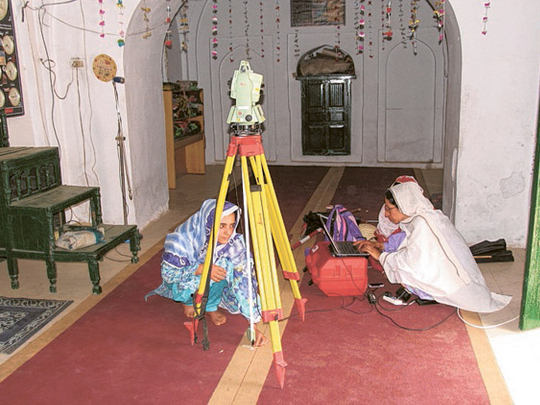
Islamabad: In most households in Pakistan, girls are considered a liability — unable to contribute financially to their families — and regarded as a "burden" on male family members.
This is in part because employment for women is still not the norm.
In the country, only a small number of women are employed and today constitute only around six per cent of Pakistan's labour force, according to official figures.
An unusual programme started by the Aga Khan Cultural Service Pakistan, a part of the international Aga Khan Development Network, has endeavoured to turn this reality around.
The organisation has trained around 70 women, some from remote rural areas, to work in non-traditional areas which include drafting, surveying, carpentry, landscape design and documentation. As a result, women now earn an income and have also gained confidence and self-esteem.
According to groups working for the rights of women, such as the Human Rights Commission of Pakistan, the empowerment of women is vital to ending violence suffered by a large number in the country.
Conservation
"We first thought of using the skills of local women when we were engaged in conservation work in Gilgit [located in the extreme north of Pakistan]," said Safiullah Baig, a Senior Manager at AKCSP and the head of the Norwegian-funded Women Social Enterprise project.
"It was expensive to bring in experts, so we thought about using local girls and young women who had completed their schooling or intermediate-level education and desperately needed money, for surveying, documentation and other work," he told Gulf News.
The initiative, in an area where there were few opportunities for women was a big success. Young women have been trained as carpenters, masons, plumbers, documentation, surveying and other skills required for conservation work in their areas.
The initiative has been expanded to other areas, including Multan in the southern Punjab. The women bring in, on average, a monthly income of some Rs7,000 (Dh300).
Some of their income is invested for them and Baig believes the confidence they gain, and their ability to bring in money, will also play a part in keeping their families smaller in the future as "they will have more say in matters".
Tahereh Sheerazie, a Los Angeles-based landscape designer, who worked with five girls to develop a garden at the Abruzzi School in Shigar in the Gilgit-Baltistan territory, said "calling upon their creative faculties, prodding them to come out of their shells was the successful outcome of my two-month exercise teaching garden design."
"I really liked the fact that my wife is working on this project," said Mohammad Iqbal, the husband of Nusrat Bibi, one of the girls engaged with the garden design project.












